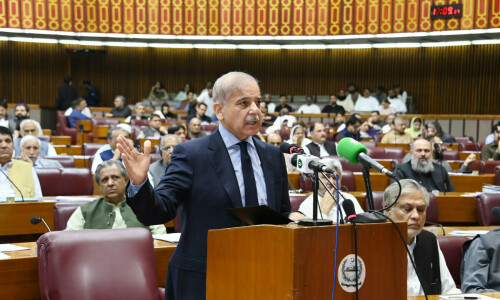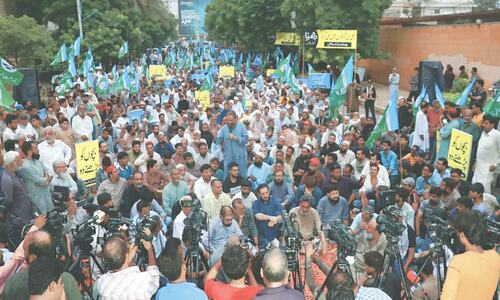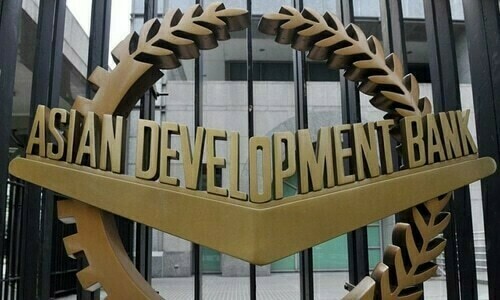• Panel to finalise report within 45 days, submit it to PM Shehbaz
• Hafiz Naeem says party will stage sit-in again if govt fails to keep promises
RAWALPINDI: The Jamaat-i-Islami has called off its two-week-long sit-in after it reached an agreement with the government on the formation of a task force aimed at addressing issues related to independent power producers (IPPs), reducing electricity bills and lowering taxes on the salaried class.
The announcement came in the early hours of Friday after the two sides concluded the fifth round of talks at JI’s protests site at Rawalpindi’s Liaquat Bagh.
However, JI emir Hafiz Naeemur Rehman insisted that the party was deferring and not ending the sit-in, warning that his party would follow up on the government’s promises and would stage a sit-in again if it failed to keep its words.
The task force formed as a result of the agreement is expected to finalise its report within one and a half months and submit it to Prime Minister Shehbaz Sharif.
JI’s naib emir, Liaqat Baloch, addressed participants alongside Interior Minister Mohsin Naqvi and Information Minister Attaullah Tarar and announced that the government had agreed to meet JI’s demands after a 14-day sit-in by workers.
Talking about the agreement, Mr Baloch said the task force would conduct an audit of IPP agreements and include foreign experts to ensure transparency. He emphasised that monitoring the energy sector is crucial to provide further relief to consumers.
“The IPP issue is a major problem for Pakistan’s economy,” Mr Baloch said. “The government appreciated JI for highlighting this issue. A committee will also be formed to address tax issues for the business community and agricultural tax for large landowners, with relief to be announced for farmers.”
Interior Minister Mohsin Naqvi said both the government and JI were committed to providing relief to the public, with plans to reduce electricity bills soon.
“We aim to make the country prosperous,” he said, adding that JI’s peaceful approach to meeting their demands should be commended.
Information Minister Ataullah Tarar added that JI’s demands were in line with PML-N’s agenda, noting that the PML-N government had already provided relief to consumers using up to 200 units of electricity, with Rs50 billion allocated for this purpose.
Talks between JI and the government resumed on Tuesday after a five-day gap. It was decided that the government would respond to the party’s demands in writing by Wednesday, after which JI emir Hafiz Naeemur Rehman would decide the fate of the sit-in.
The JI delegation, led by Liaqat Baloch, included Amirul Azeem, Syed Farasat Shah and Nasrullah Randhawa. Hafiz Naeem also attended the meeting.
The government delegation, led by Mr Naqvi, included Information Minister Tarar.
Earlier, addressing a press conference at the Rawalpindi sit-in, Hafiz Naeem rejected what he called a “double, triple” tax system and insisted that any agreement with the government be documented in black and white.
“It’s strange that the salaried class pays tax on their salaries and then pay tax on flour, sugar, daal, ghee and matchbox,” the JI chief said, warning that people were worried and “this lava can erupt anytime”.
Published in Dawn, August 9th, 2024















































